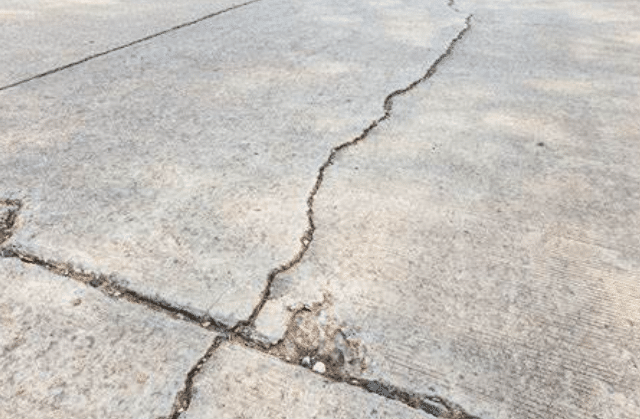Why Your Driveway Concrete Cracks In El Cajon?
 Concrete driveways are known for their longevity and durability, however, they can still be vulnerable to cracking due to external forces. Cracks in the driveway may be caused by a variety of reasons ranging from too much weight or pressure being applied to the concrete to improper installation techniques. Let’s take a look at 7 Reasons That Why Your Driveway Concrete Cracks:
Concrete driveways are known for their longevity and durability, however, they can still be vulnerable to cracking due to external forces. Cracks in the driveway may be caused by a variety of reasons ranging from too much weight or pressure being applied to the concrete to improper installation techniques. Let’s take a look at 7 Reasons That Why Your Driveway Concrete Cracks:
- The soil beneath your driveway may not be suited for supporting the weight of your driveway. When this is the case, it can cause cracks due to subsidence and shifting of the ground underneath.
- If you don’t properly compact and level out your sub-base before pouring the concrete, it can cause weak spots and cracks due to uneven ground.
- When a driveway is not installed correctly, you run the risk of developing cracks in your concrete due to improper curing or wrong mix of materials. It’s important to follow all instructions given by your contractor when installing your driveway concrete.
- Extreme temperatures that are too hot or too cold can also cause cracking in your driveway because of the way it affects the concrete’s drying process.
- A driveway can only handle so much weight before it begins to crack due to strain and pressure put on it from heavy vehicles and other sources.
- If you have trees near your driveway, the roots can spread beneath it and eventually cause it to crack due to the excess pressure.
- If any damage or cracks are left unrepaired in your driveway, they can worsen over time and cause further deterioration of your concrete.
FAQ’s
Why Does Concrete Crack?
Concrete cracks due to a variety of reasons ranging from soil conditions, improper installation techniques, temperature extremes, weight bearing issues, tree roots and unrepaired damage.
How Do You Prevent Concrete From Cracking?
To prevent concrete from cracking you should ensure that the sub-base is properly prepared and leveled before pouring the concrete; use the correct mix of materials as recommended by your contractor; avoid overloading or stressing your driveway with too much weight; have any existing damage promptly repaired; and keep trees away from your driveway to minimize root pressure on the concrete.
What Are The Different Types Of Concrete Crack Repair?
The different types of concrete crack repair include patching with cementitious products such as self-leveling concrete, epoxy injection, surface sealers and grouting with polyurethane foam.
Conclusion
By understanding the potential causes of why your driveway concrete cracks, you can take steps to prevent it from happening in the first place as well as having regular maintenance and inspections to catch any existing damage before it gets worse. For more information, contact Concrete Contractor El Cajon at (619) 473-4433.